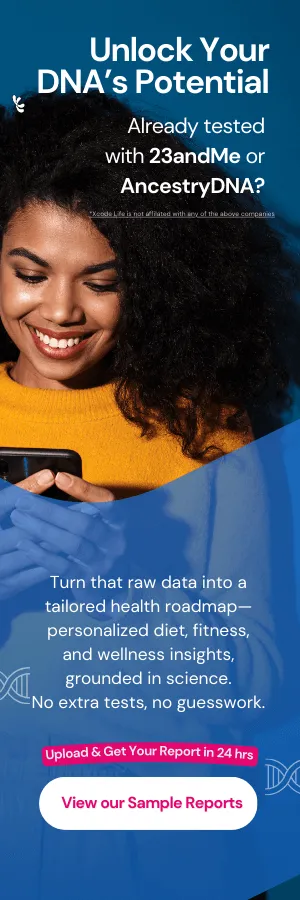Overview
You must have heard people say that they have a ‘sweet tooth.’ They always tend to crave sugary drinks and foods. They may not even be able to complete a meal without a dessert.
So, what is this tendency to crave sweets? Is this some kind of addiction, or do these people actually need excess sugar to function actively?
People have specific likes and dislikes when it comes to taste. In fact, people are born with these likes and dislikes. One such strong like that many have is a preference for sweet foods.
Sweetness As A Basic Taste
Sweetness is a basic taste you get when you eat anything sugary. Any soluble carbohydrate that is used in foods and tastes pleasant belongs to this category.
There are also certain other substances that give a sweet taste. These are called non-sugar substitutes and include aspartame, saccharin, and other chemical sweeteners.
The taste threshold is the minimum concentration of a particular taste that people are able to easily identify.
Sweetness has the highest taste threshold. People identify and relate to sweetness easily and are trained to enjoy the taste all through life.
Is Sweet Tooth A Justified Condition?
Newer studies are confirming that sweet tooth can be an actual condition and not just an excuse to gorge on sweet treats!
A study that analyzed the data of about 6500 people from the Danish community concludes that a particular hormone secreted in the liver determines who loves sweet foods and who doesn’t.
More studies relate the FGF21 gene to an increase or decrease in the preference for sweet foods. (More about this in the genetic section)
Sweet Foods At The Molecular Level - Getting Technical
How do our bodies react so positively to sweet foods? The minute you eat something sweet, the sweet receptors in the tastebuds identify the taste and send information to your brain.
It was recently discovered that human beings have taste receptors throughout the body, including the linings of the GI tract, the nasal epithelium, the respiratory system, and even in the testes and sperm!
As food enters the gut, the enteroendocrine cells identify sweetness. The amount of sweetness encountered by the enteroendocrine cells determines your hunger or feeling of fullness.
Leptin is a hormone secreted by the adipose tissues and in the small intestine. This hormone helps inhibit hunger and tells you that you can stop eating. Leptin ensures energy balance in the body.
Leptin and the signals from the sweet taste receptor cells work in coordination to identify whether you are full or not. Leptin levels are the highest around midnight and lowest in the afternoons. High leptin levels bring down sweet taste sensitivity.
Because of leptin level changes, certain foods that you feel are very sweet in the afternoon might feel just fine at night!
Most people crave sweet treats in the middle of the night because of this reason.
The History Behind Sweet Foods
Imagine 8000 BC when cavemen were trying to make weapons and tools with stones. Cave paintings during that period show cavemen raiding beehives to get sweet honey.
Our sweet tooth and the tendency to prefer sweet foods date back to the stone age!
Sugar was produced in India very early. Around 2000 BC, Indians were already making sugar-coated milk-based sweets that they enjoyed during festivals and special occasions.
Romans started making gold-laced sweets called Kryksokolla in 600 AD. As sugar cultivation became popular around the world, the different kinds of sweet foods produced increased too.
Early primates searched and fought overripe fruits. Ripe fruits were full of sugar and gave the monkeys and apes an instant dose of energy that was very important in the wild. Scientists believe that we relate sweet foods to energy and survival and are still drawn to them subconsciously.
Recommended Values
About two centuries ago, the average American consumed 2 pounds of sugar a year. Do you know the value now? It is a staggering 152 pounds a year!
Sugar comes in two distinct forms - natural sugars (found in fruits and vegetables) and added sugars (found in sweets, pastries, processed foods, beverages, and snacks). The recommended values of sugar mentioned below are for added sugars.
Genetic Association
FGF21 Gene
The FGF21 gene produces a hormone that regulates glucose metabolism in the body. The rs838133 SNP of the FGF21 gene creates changes in the tendency to prefer sweet foods. People with the A allele of this SNP have a higher tendency to prefer sweet foods than those with the G allele.
FTO Gene
This is called the Fat mass and obesity-associated gene. While variations in the gene directly affect weight gain, the rs1421085 SNP of the gene also seems to cause changes in preference to sweet foods. The C allele of the rs1421085 SNP makes an individual prefer sweetness over other tastes.
Non-genetic Factors Causing The Tendency To Prefer Sweet Foods
Why do people tend to prefer sweet foods? Here are non-genetic factors that cause an excessive preference for sweet foods.
Sweet foods are addictive - Sweet foods activate the same receptors in the brain that drugs like heroin do. This makes them addictive and increases people’s tendencies to prefer sweet foods over other types.
Sweet foods are associated with having a good time - Think of times you indulged in sweet foods - weddings, parties, and get-togethers with friends. Sweet beverages and desserts are associated with happiness and hence are more preferred.
Sweet foods are comforting - Sweet foods are known for their comforting and soothing properties. The mood-altering nature of these foods makes them a preferred choice.
Habit - There was a time when sweet foods were only available occasionally. Right now, though, the common American diet is sugary and sweet. Our bodies are used to all the excess sweetness we consume, and this has become a habit.
Age - Children have a higher tendency to prefer sweet foods. This could be because of their higher growth rate. Since children grow faster, their bodies look forward to high-energy food sources. Sweet foods are high in calories and give instant energy.
Symptoms Of Excessive Sweet Consumption
When you consume more than the recommended values of sugar a day, here is what will happen.
- Excess caloric intake leading to weight gain
- Increased risks of pre-diabetes and diabetes
- Psychological disorders including depression and anxiety
- Increased risks of heart diseases
- Increased risk of Non-Alcoholic Steatohepatitis (NASH) and Non-Alcoholic Fatty Liver Disease (NAFLD)
- Sugar craving and sugar addiction
Sweetness Withdrawal Symptoms
Sugar addiction increases your tendency to prefer sweet foods and makes your body crave sugar all the time. This is similar to mild drug addiction. Stopping sweet foods all of a sudden can lead to the below withdrawal symptoms.
- Lightheadedness
- Nausea
- Fatigue
- Anxiety and depression
- Insomnia or an excessive need to sleep
- Difficulty in focusing
Recommendations For Consuming Sweet Foods
Pick natural sugars over processed sugars - You could have a higher tendency to prefer sweet foods. However, get your source of sugar from natural sources like fruits and vegetables. These are healthier and also give you other essential vitamins and minerals needed for the body.
Check nutritional labels - Before you pick up something from the grocery store, check the nutritional label. Satisfy your sweet tooth with low-sugar or natural sugar versions. Stay away from foods and beverages that are loaded with refined sugar. These only make you more addicted to sweet foods.
Know your genetic makeup - A simple genetic test will show you if you have a higher tendency to prefer sweet foods. If so, start making healthier sugar choices and slowly bring down your processed sugar intake to get healthier.
Switch to a low-calorie sweetener - Low-calorie sweeteners are also called artificial sweeteners. If you have existing health conditions that can be made worse with sugar intake, then use artificial sweeteners sparingly to handle your cravings.
Burn the calories - Craving for a donut? Indulge in one and then work out for an extra 15 minutes to match up the sugar you consumed.
Summary
- Sweetness is a very addictive and pleasurable taste that human beings have grown to love.
- Some people are genetically inclined to have a sweeter tooth than others. Others start liking sweet food because of habit and for the comfort it provides.
- Natural sources of sweet foods are relatively healthier than foods full of processed-sugar.
- If your tendency to prefer sweet foods makes you gorge on calorie-rich sweets, snacks, and beverages, you are at a higher risk of developing various health conditions.
- Know if you are genetically inclined to like sweet foods more. If so, make the right lifestyle changes and choose healthier food options to prevent the side-effects of sugar consumption.
Reference
https://www.mirror.co.uk/news/uk-news/sweets-through-ages-timeline-shows-6882741
https://www.dhhs.nh.gov/dphs/nhp/documents/sugar.pdf
https://www.ncbi.nlm.nih.gov/pmc/articles/PMC3738223/
https://www.nhs.uk/live-well/eat-well/how-does-sugar-in-our-diet-affect-our-health/
https://www.ncbi.nlm.nih.gov/pmc/articles/PMC3738223/
https://www.ncbi.nlm.nih.gov/pmc/articles/PMC5537773/
https://www.ncbi.nlm.nih.gov/pmc/articles/PMC2551675/
https://blog.23andme.com/wp-content/uploads/2015/03/5-N8XiOLkGIgydwX_SS-IQ_23-08_Genetic_Associations_With_Traits1.pdf




